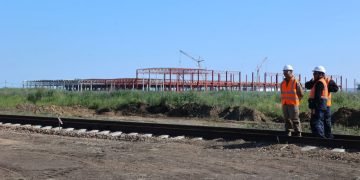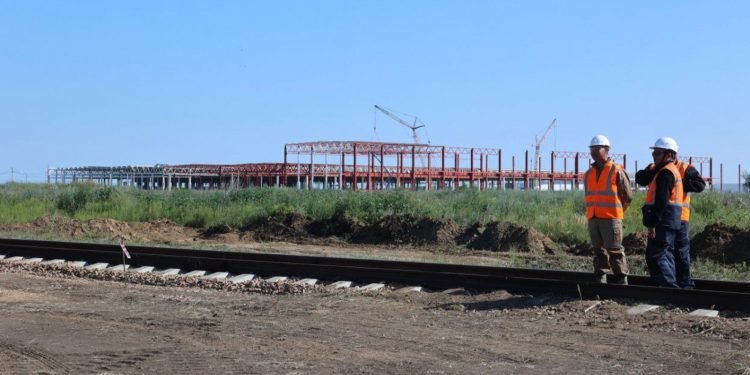By Maria Kalamatas | July 21, 2025
Section: International / Infrastructure & Trade Corridors
Kostanai, Kazakhstan — July 21 — The Kostanai region has launched the construction of the Tobyl Strategic Logistics Hub, a multimodal complex designed to streamline transport across Central Asia and beyond.
“This project will reshape our logistics landscape,” said Aigul Zhakupova, Deputy Governor of Kostanai Region. “We’re integrating road, rail, customs, and IT systems in one place to support trade and investment.”
Ramping up capacity
Transit through Kazakhstan rose 4 percent in the first half of 2025 to reach 16.8 million tons. The new hub, scheduled for completion by 2027, will include terminals, warehouses, bonded zones, customs offices, and real-time cargo tracking — all built on a single digital platform.
Key part of international corridors
Tobyl will serve as a central node along trade routes connecting China, Central Asia, Türkiye, Iran, Afghanistan, and Europe. Officials expect it to boost regional cargo flows and reduce costs by consolidating services at one location.
Local economy meets global ambition
The surrounding area is already attracting industrial development, including a Kia vehicle plant capable of producing 70,000 units per year and a cluster of automotive parts suppliers. Zhakupova said the hub will ensure these industries can move exports reliably and efficiently.
“Manufacturers need certainty, reliability — this hub gives them that,” she added.
Digital backbone & real-time tracking
A core feature of the project is its IT infrastructure, designed to give shippers full cargo visibility from dispatch to delivery. It aligns with Kazakhstan’s goal to become part of the region’s growing network of smart trade corridors.
“Real-time data means fewer delays and fewer surprises,” Zhakupova said.
What comes next
Construction begins immediately, with the hub expected to be fully operational by 2027. Discussions are already underway with Kyrgyzstan and Uzbekistan to create feeder routes that will connect smaller markets to the new hub.
For shippers, the project promises faster customs clearance, reduced handling costs, and more reliable overland transit across Eurasia.























